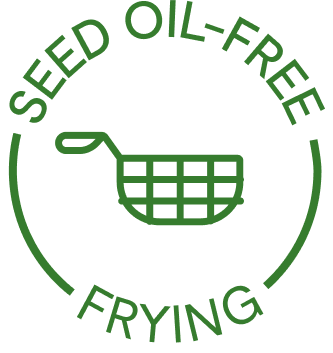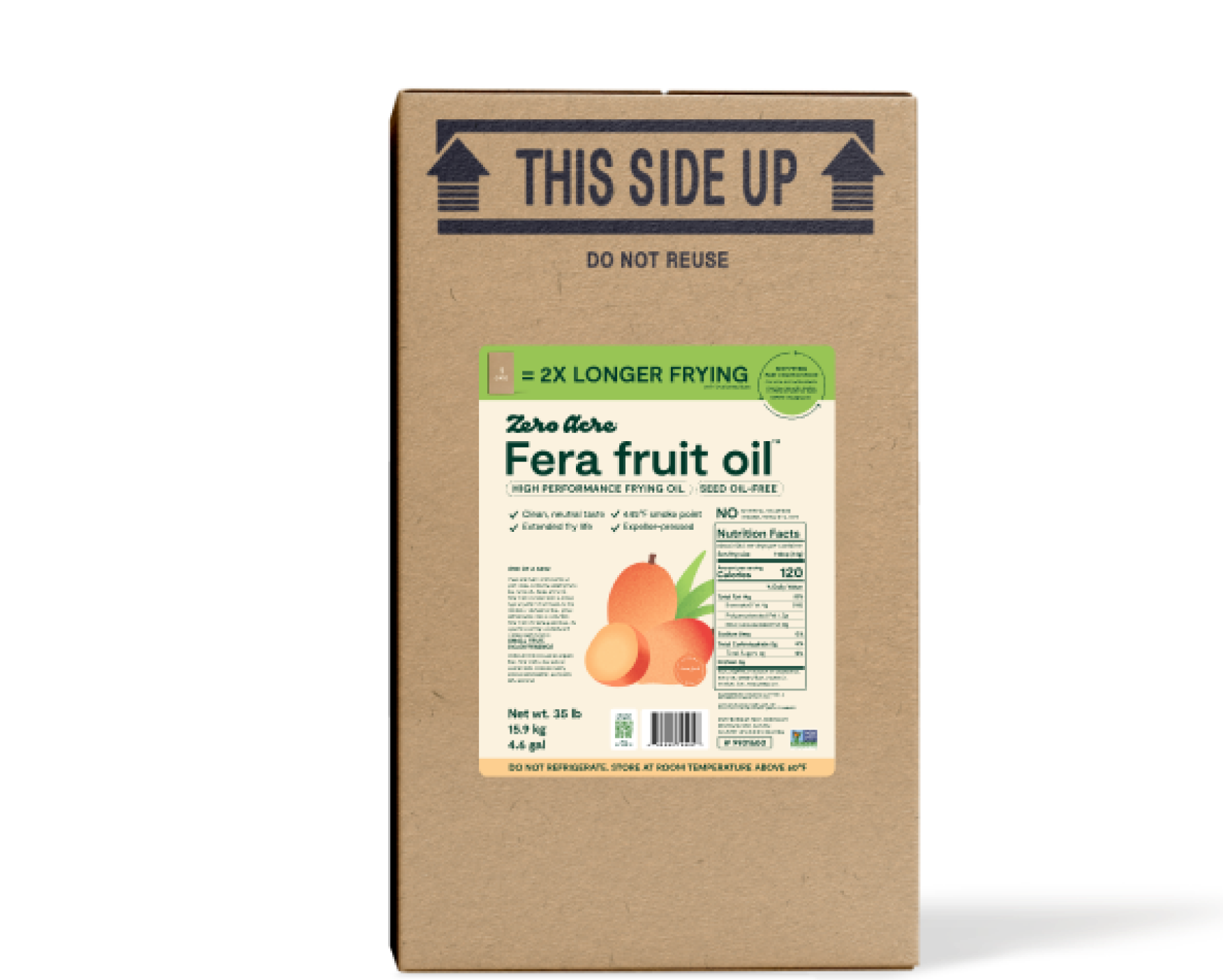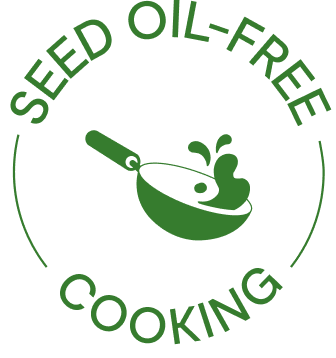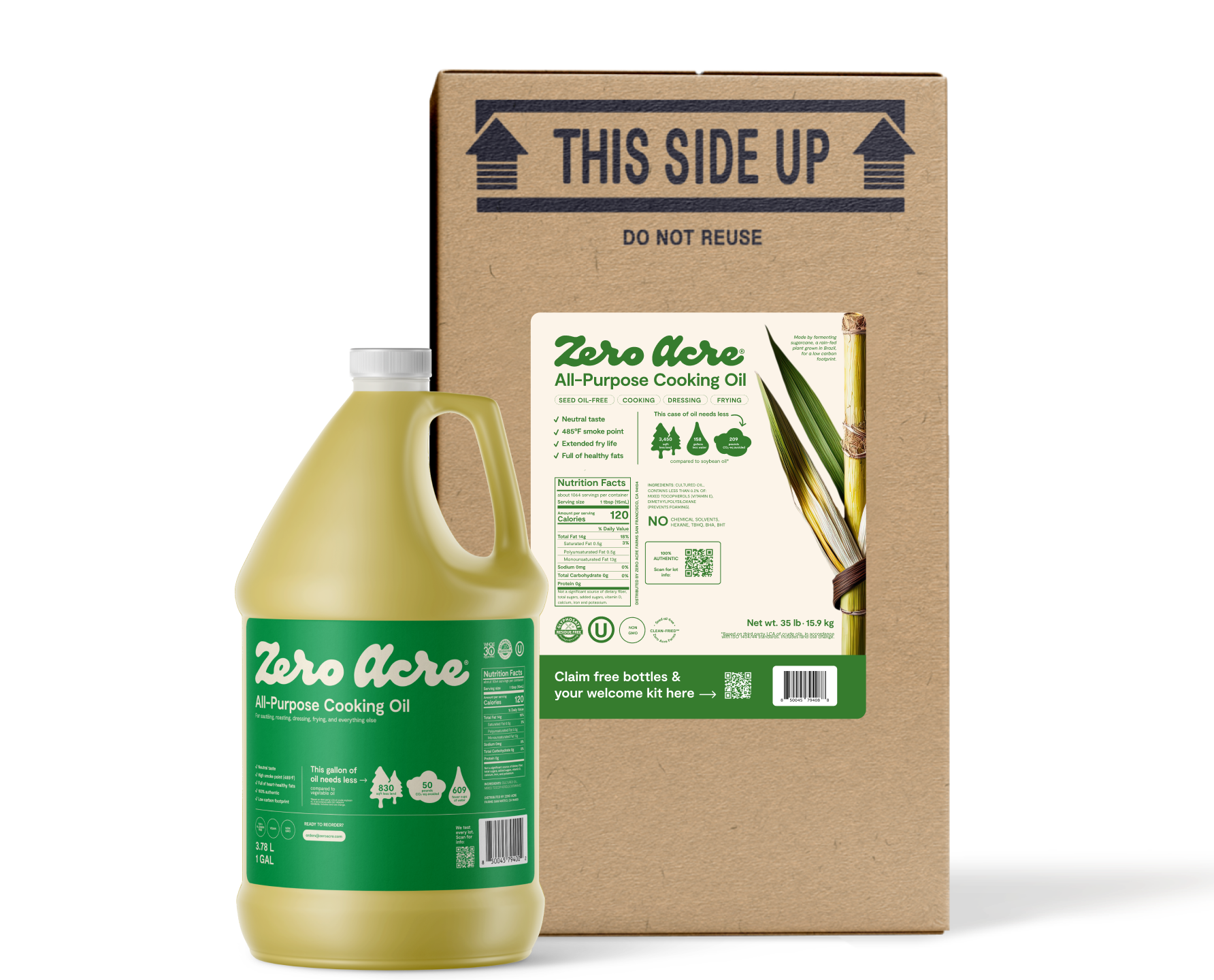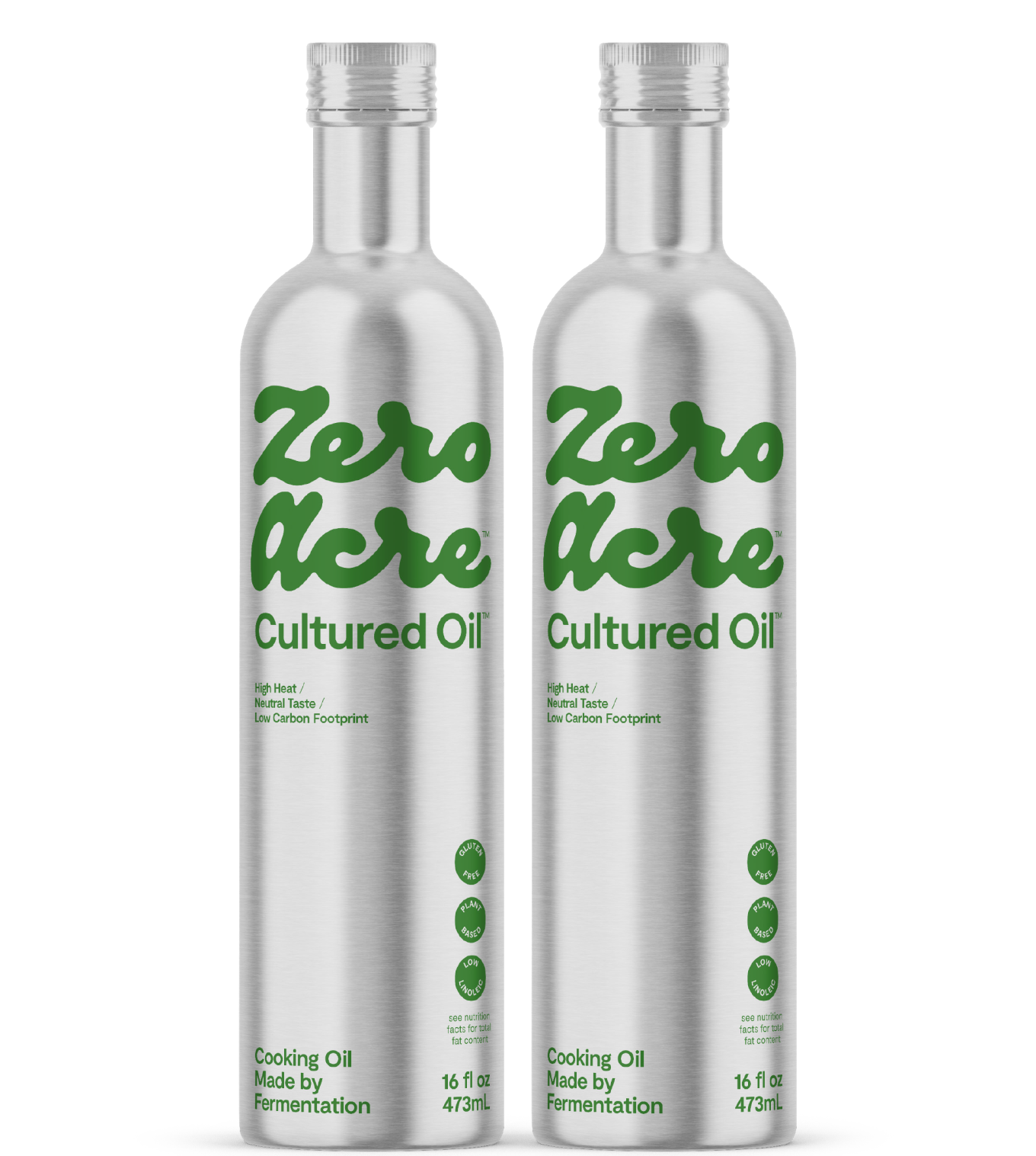44 Seed-Oil Free Healthy Travel Snacks
WRITTEN BY: Sabrina Tillman
Fermentation, Not Deforestation
We believe the solution to the massive problem of vegetable oils, and the lead domino in our battle against chronic disease and deforestation, lies in the original culinary art, after fire — fermentation.
Fermentation has been used for thousands of years to make bread, beer, wine, pickles, and kimchi. We're leveraging this ancient culinary technique for a different purpose, to make healthy oils and fats that don't destroy our environment. Oils and fats made by fermentation not only have significantly lower levels of the bad fats that have been linked to disease, but also have a fraction of the environmental footprint compared to vegetable oils.
Unlike vegetable oils, Zero Acre Farms’ oils and fats made by fermentation do not introduce unprecedented amounts of novel fatty acids to the human diet. Instead, we take cues from what’s worked for thousands of years. We aim to produce zero-harm oils and fats modeled from what we evolved to eat, and we aim to make them in a more sustainable way, using fermentation as our tool.
We recognize that all tools and technology are a double-edged sword. They can be used for good or for bad. Fire is great when it cooks our food; it’s not so great when it burns down our houses. We think the key to embracing food technology, from fire to fermentation, is to be as grounded as possible in evolutionary principles and have an appreciation for what got us here, not try to outsmart nature. We use technology only to the extent that it helps us better align our biology with our environment.
Making a Viable Alternative
In today’s world, vegetable oils are extremely difficult to avoid. Even the most adamant vegetable oil critics often find themselves at a restaurant, whether fast food or Michelin-starred, with a menu full of foods fried, sauteed, or dressed in vegetable oil.
In the U.S., we are a country that loves to eat out; in fact, the majority of Americans eat out or order takeout or delivery multiple times per week [*]. And vegetable oils are found in pretty much every restaurant meal, including french fries, fried chicken, onion rings, hash browns, tortilla chips, salads, grilled meats, stir-fried vegetables, sauces and marinades. The list goes on.
To reverse chronic disease and restore natural ecosystems, it’s not enough to educate people about the problem and try to convince consumers to avoid these foods. And it’s not realistic to expect that consumers only eat home-cooked meals to avoid vegetable oils. We need a solution that will displace vegetable oils at scale, in home cooking, as well as in restaurants and packaged foods.
Healthier, more sustainable oils and fats need to become the default choice, and that requires alternatives to vegetable oils that are better — better for taste buds, better for chefs, better for food manufacturers, better for wallets, and also happen to be better for our health and the health of our planet.
To borrow an example from the strategy used by Tesla to reduce the environmental burden of gas-powered transportation: It’s not effective to try and convince everyone to take the bus to work and stop driving. We need to make alternatives, like electric cars, that are not only safer and have a lower carbon footprint, but are simply better cars.
Our dream is for everyone everywhere in the world to be able to enjoy the foods they love without destroying their health or the planet’s. Fat makes food delicious, and delicious food doesn't have to be unhealthy or unsustainable — nor require a sacrifice.
Giving up cheeseburgers, croissants, and cake is a conscious decision to stop eating delicious food, for the sake of one's health or the greater good. That's hard — really hard. It's the reason most diets don't work. Giving up vegetable oil is just as hard right now, because it's in everything. But in a world where better fat is the default choice, it's not hard to give up a food that you’re barely aware you consume in large amounts in the first place. Most people may not even notice the upgrade.
The Path Forward
If there’s anything worth fighting for, it’s having more years of a happy, healthy life with loved ones, reducing the suffering of humans and all other life, and ensuring that everyone can enjoy the world around them for years to come.
Health and sustainability should go hand in hand. We shouldn’t eat foods that are good for the planet at the expense of our health, nor the other way around. Either there won’t be any healthy people around to enjoy the planet, or there won’t be any healthy planet left for people to enjoy.
Unlike crusades against factory farms, refined carbohydrates, sugar, cigarette smoking, fossil fuels, and other problematic industries, no one has worked on solving the important problem of eliminating vegetable oils at scale — until now.
A couple of years ago, a few of us got together and started Zero Acre Farms with the mission to remove destructive vegetable oils from the food system.
Selfishly, as a team of food lovers, we look forward to the day when we can eat out at a restaurant and not worry whether the food is slowly killing us. When we can enjoy foods cooked in oil and fat without wondering how many acres of rainforest were destroyed, or how much closer another species came to extinction, as a result of our meal.
We are partnering with chefs, climate scientists, nutritionists, MDs, PhDs, and celebrities that can influence change. We want to send an important message to the world that vegetable oils are a problem, and there’s a better way, with better fat.
If we could snap our fingers and remove all vegetable oils on the planet, we think the result would be nothing short of the reversal of chronic disease and obesity, as well as a massive slowing of climate change and the restoration of millions of acres of natural ecosystems.
So let's build toward that better future. Let’s give the world an oil change. It may not happen as quickly as the snap of our fingers, but all important journeys begin with one step.
In the case of eradicating vegetable oils, that first step is now.
Better oils and fats are coming soon. To stay up to date on Zero Acre Farms’ fight against destructive vegetable oils, sign up for our newsletter.
The role of vegetable oils in health and climate is a complex topic. If you have any questions, email us at questions@zeroacre.com.
Article at a Glance
When sourcing healthy travel snacks, be mindful of dietary restrictions or allergies, nutrient content, shelf life, and convenience.
Our list of 18 easy, healthy travel snacks can be prepared in advance to bring with you. We walk you through how to prep and pack them so they’re ready when you are.
When snack prep isn’t an option, our curated list of best, better, and good brands can help you grab and go.
Introduction
Healthy travel snacks aren’t just for kids. Sometimes life gets too busy to sit down to eat a proper meal, flight delays and traffic jams happen, and arriving in new time zones can mean grumbling stomachs at inopportune times. When you’re on a road trip, a healthy travel-ready snack can save you from loading up on gas station hot dogs or Cheetos from a vending machine.
Unfortunately, fake cheese powder isn’t the only thing you’ll need to avoid when you’re on the road. Vegetable oils, also known as seed oils, top the ingredient lists of most snack options, whether you’re at a roadside pitstop or an airport snack kiosk.
Yes, it can take a little more foresight to shop for healthy travel snacks and, in some cases, to prepare them. And, yes, fresh fruits and veggies are at the top of most lists of portable, healthy snacks. But those shouldn’t be your only go-tos when you’re avoiding inflammatory seed oils and other nasty additives.
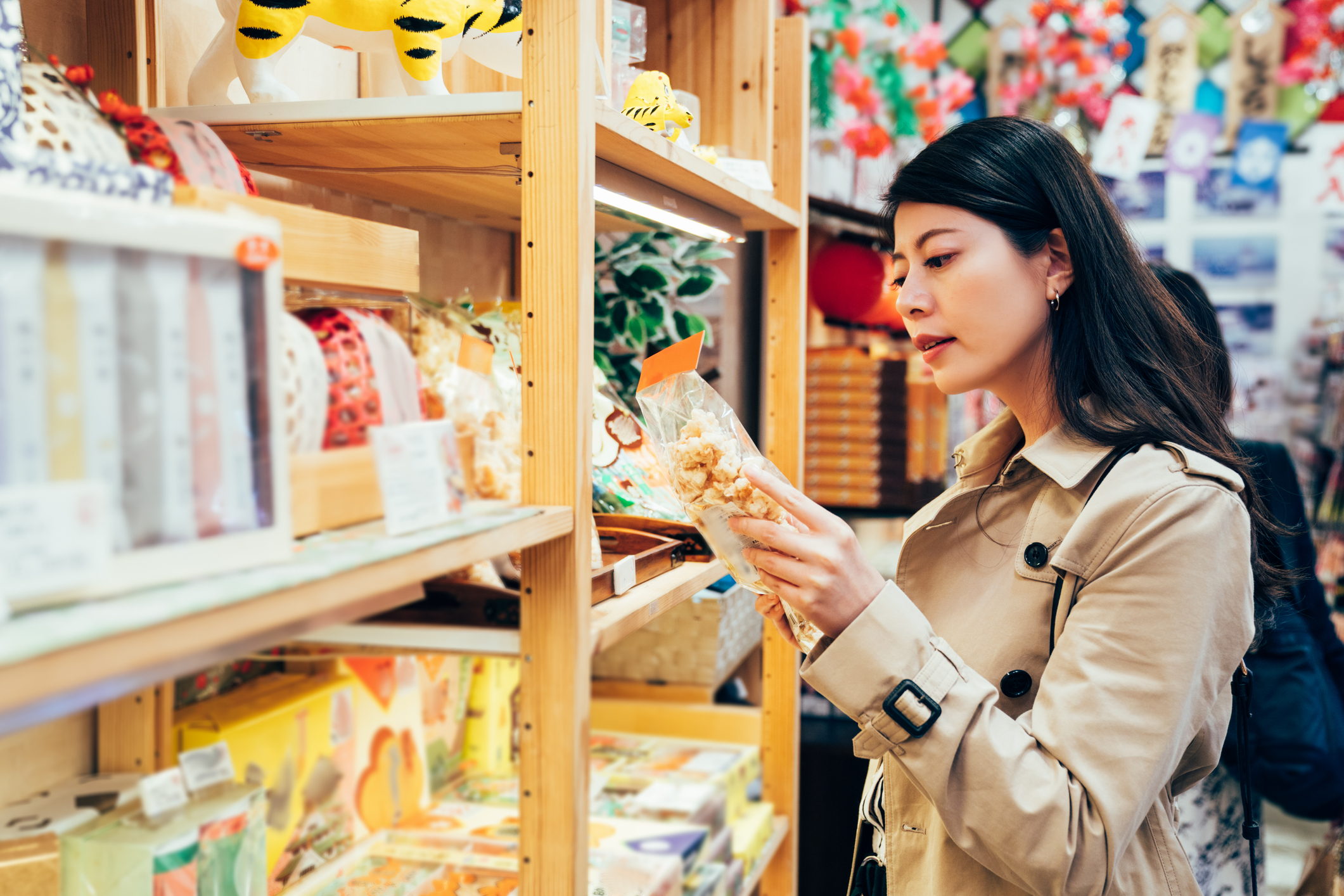
The Big List of Seed Oil-Free Snacks
Choosing quality seed oil-free snacks means reading labels, which can be a hassle. Here’s a full list of seed oil-free snacks so you don’t have to think about it.
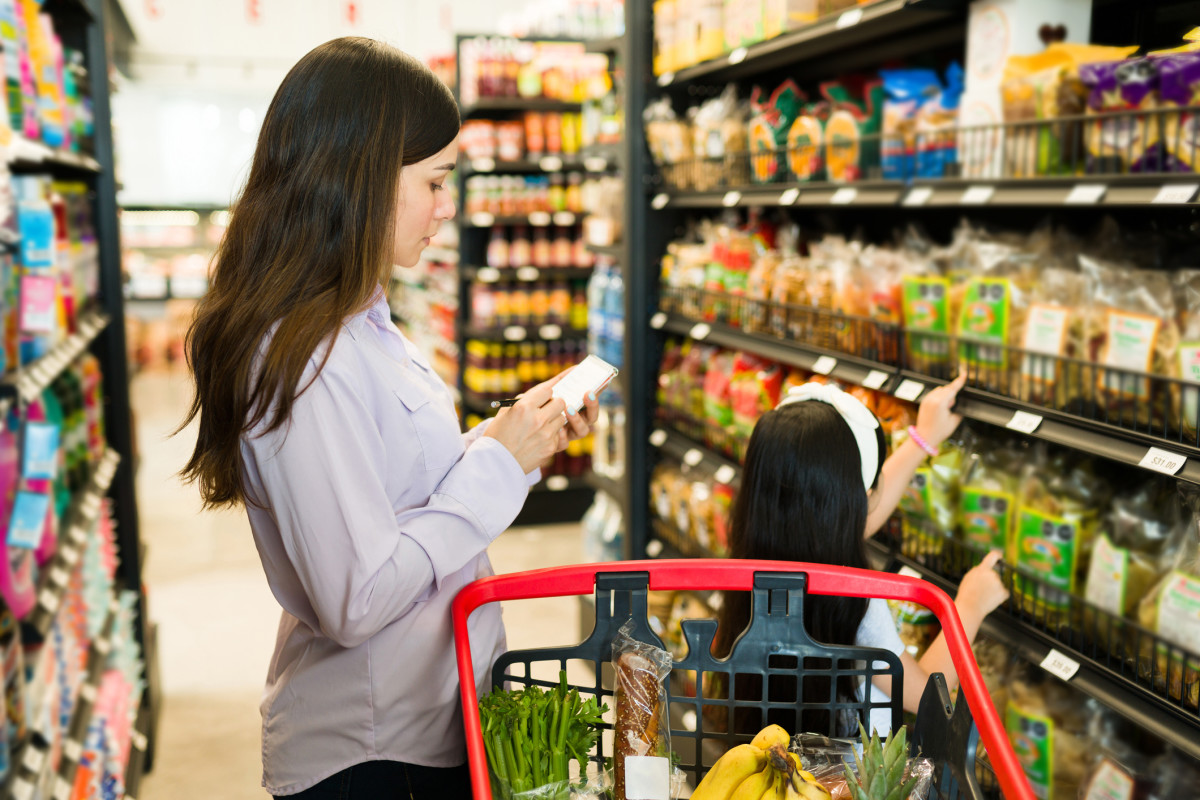
The Ultimate Seed Oil-Free Shopping List: 65+ Must-Haves
This seed oil-free shopping list has everything you need for a well-stocked kitchen, from cooking ingredients to ready-to-eat meals, snacks, dips, and more.
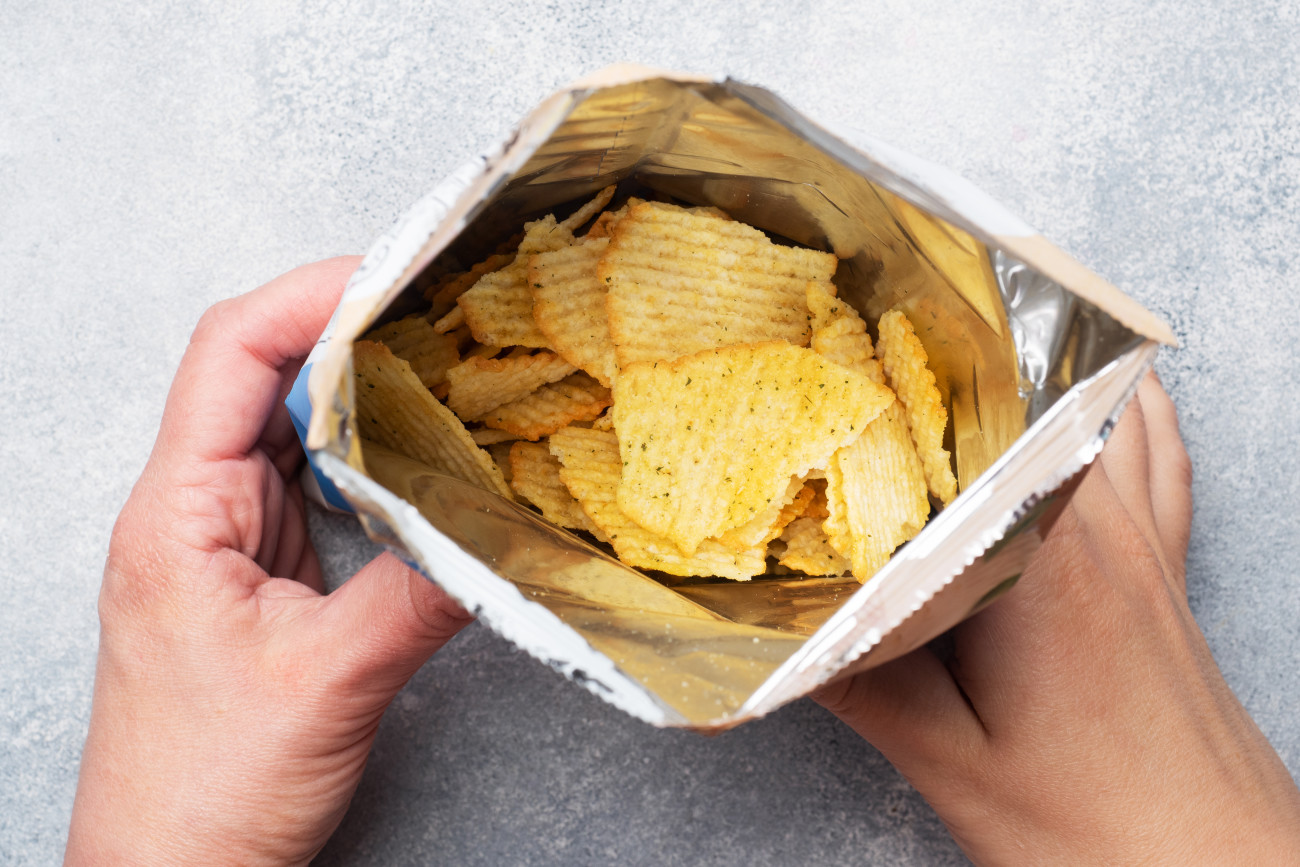
Seed Oil-Free Chips: The Best Potato, Tortilla, and Grain-free Chips You Can Buy
You might avoid chips because they’re deep-fried, but seed oils may be a bigger concern. There are satisfying seed oil-free options for potato chips, tortilla chips, grain-free chips, and chip alternatives.

